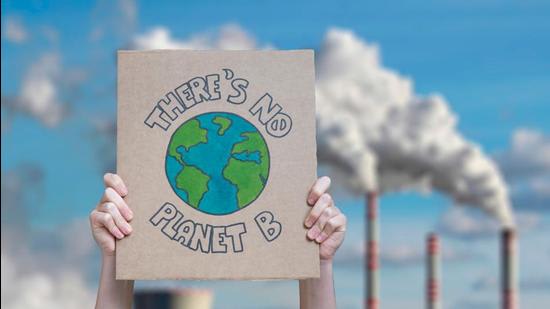
When it comes to solving the global energy and climate crisis and achieving Sustainable Development Goals (SDGs), India plays an indispensable role. Its population will increase to 1.7 billion by 2050 and all Indians have a right to health, education and housing.
The basis for this development is energy. Without energy, there are no hospitals, no schools, no computers and no mobility. All the other structures, for example, to boost industry, create jobs, shape urbanisation and lift people out of poverty, emerge from the development of the energy infrastructure. If every new household were to be supplied with energy based on coal, many new coal power plants will have to be built. The Paris climate goals will thus move beyond reach.
Instead of that, India and Germany must become countries of renewable energies.
The potential on both sides has not yet been fully exploited. Per capita CO2 consumption in India is two tonnes, in Germany it is 10 tonnes. Together, our two countries are responsible for nearly 9% of global greenhouse gas emissions. We must and want to reduce this.
To achieve this, we need to switch from coal to renewable energy as soon as possible. At COP26, all countries agreed to phase down unabated coal power. An important step.
In our countries, we have the knowledge and the technology for such a climate-neutral development. With Indian inventiveness and German ingenuity, with consistent climate-friendly policies, we are in a position to make a global difference.
This transition must be designed in a way that there is no social hardship, energy supply for all people, and new jobs for the ones that have been lost. The “older” industrialised countries have a special responsibility to move forward and support other countries. That’s why Germany had deepened its cooperation with India in the area of climate and development at the recent government negotiations by agreeing to low-cost loans of more than ₹100 billion. That’s how we create together modern jobs, strengthen technology transfer, and help reach international climate goals.
The investments thus funded include solar and wind power plants and the development of green corridors – overland power lines, energy storage – in order to connect as many Indians as possible to renewable energies. Together, 7,770 km of green energy corridors have been created in India’s “Sunshine states” and other measures have led to more than 100 million tonnes of CO2 emissions being reduced or avoided annually.
Synergy effects in technology and knowledge are being used by Indian and German engineers, also in the field of green mobility. In Nagpur, the construction of the metro is being supported with half-a-billion euros. Two-thirds of the electricity for the trains comes from solar systems. More and more people are moving to the cities and so the need for affordable, sustainable public transport is growing. With these activities, we have also tapped into completely new markets — the solar plant in Maharashtra was India’s largest solar plant when it was connected to the grid in 2013. It helped make solar energy competitive and private investments attractive.
This cooperation opens up great opportunities for economic and industrial cooperation – between German, European and Indian companies. It is also creating modern jobs. According to a German-Indian study, employment in the Indian energy sector can increase by 30% over the next ten years as a result of further decarbonisation. We must resolutely continue on this path. Germany will take over the G7 presidency in 2022. India, too, will assume the G20 presidency in 2022.
As close partners in multilateralism and constitutional democracies, we share a strong interest in a global energy transition that will save our climate, provide energy for all and leave no one behind. In my new capacity as director-general of the United Nations’ organisation for industrialisation, I will continue to specifically address these issues. We must not miss this opportunity – for the sake of our children.
Gerd Müller is acting German minister for economic cooperation and development and director-general elect of the United Nations Industrial Development Organization (UNIDO)
The views expressed are personal
Sign on to read the HT ePaper epaper.hindustantimes.com